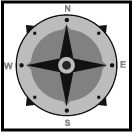The American Revolution and the Growth of a Nation
This lesson offers a short overview of U.S. history from the time of the American Revolution to just before the Civil War.
The American Revolution
Over time, the 13 colonies began to distance themselves from Great Britain. One of the major precipitating factors was the French and Indian War. Britain was able to conquer Canada, but it left the empire heavily in debt. To pay its debts, Britain imposed taxes on the colonists, beginning with the Stamp Act in 1765. Although the amounts of money were small, the colonists objected strongly because they had no representation in Parliament. When taxes on tea were passed in 1773, Americans in Boston dumped tea into the harbor in what became known as the Boston Tea Party, and Parliament passed a number of laws restricting the freedom of colonial assemblies. When British troops tried to seize militia weapons at Lexington and Concord in 1775, war broke out.
The American colonists declared themselves independent with the Declaration of Independence in 1776 and selected George Washington to be the commander of the Continental Army. Though the colonists experienced several early defeats and were often short of soldiers and money, Washington was able to hold the army together. In addition, the colonists won support from France following a victory at Saratoga. With French support, Washington forced the British army to surrender at Yorktown in 1781. In 1783, the Treaty of Paris formally established the independence of the United States.
KEEP IN MIND . . .
The American colonists were not necessarily angry because they had to pay, but because they were not given any voice in the decision.

The aftermath of the war was difficult for the United States. Unable to trade with the British, the American economy suffered. The new government was based on the Articles of Confederation, and it was unable to fix the problems the new country faced. It had little control over the state governments, and it could rarely take action because implementing a decision required unanimous approval. States printed their own money, which became worthless, and there was little gold for hard currency. The low point came when a group of farmers, angered by taxes they could not pay, led a rebellion to seize weapons in Massachusetts in what was called Shays’ Rebellion. Washington came out of retirement to lead the army to crush the rebellion, which had exposed the weakness of the American government.
Example
In which of the following cities did protesting American colonists dump tea into the harbor?
A. Boston
B. New York
C. Charleston
D. Philadelphia
The correct answer is A. Boston was the site of the Boston Tea Party, a protest during which colonists dumped tea into Boston Harbor.
Subscribe to the online course to gain access to the full lesson content.
If your not ready for a subscription yet, be sure to check out our free practice tests and sample lesson at this link
